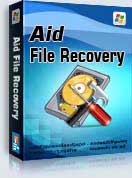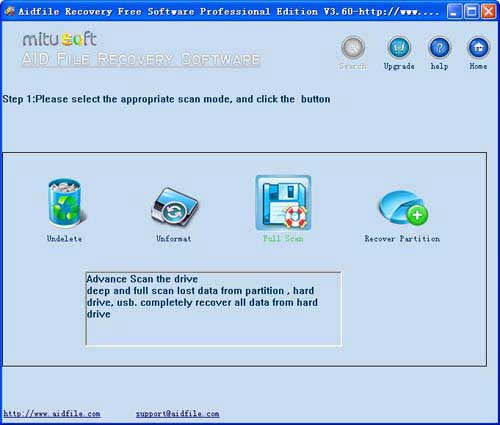BIOS cannot see my hard drive repair tool fix to do data recovery, best file Recovery software help you recover MS word,excel, pictures, music, video files from BIOS cannot see my hard drive
Use "unformat" to recover formatted drive for " BIOS cannot see my hard drive" after quick format,full format,accidentally formatted,reformatting,High-level formatting,Low-level formatting.
Use "recover partition" to recover files - BIOS cannot see my hard drive partition,lost partition,changed ,damaged partition.And if the size or position of partition is changed by format,It can not recover with "unformat"so you can use "recover partition"mode.
Use "undelete" to recover deleted files - BIOS cannot see my hard drive after Virus attack,Recycle bin clear,disk cleanup,Press shift del by mistake,permanently empty recycle bin,shift delete ,accidentally deleted by a mistake.
Use "Full Scan" to recover data - BIOS cannot see my hard drive which can not be found with "undelete" and "unformat" and "recover partition",after showing an error,display as raw file system,unformatted,unknown partition,unpartitioned,needs to be formatted,or the file system is not exfat,not fat32,not ntfs.
"BIOS cannot see my hard drive ", I have a Toshiba Tecra M11 laptop. The hard drive is a 320 gigabyte Hitachi. My system was dual booting Windows 10 Technical Preview and Arch Linux. I was using Windows and it wanted to update but I was in the middle of something so I told it to wait. A few minutes later the system froze, as experimental systems sometimes do. I powered off by means of holding the power button. Upon restarting the system into Windows, it performed the Second half of the update. I worried it might have broken something, but there were no problems until the next time I booted. It went to network boot instead of grub as it normally did. I thought maybe the update messed with my other partitions so I re-installed Arch (which is my boot partition). This had no apparent effect. In case there was something wrong with the partition table I deleted and recreated the partition table, and installed Arch. Still no effect. After this I thought the problem was most likely the BIOS. I went into setup and told it to restore default settings. No effect. I powered off, removed the power cord and battery, hit the power button, removed the hard drive, replaced the power cord and battery, powered on. The BIOS did a more complete reset. I powered off, replaced the hard drive and powered on. No effect.
Aidfile Recovery Software Keyfeature
support FAT32 EXFAT NTFS and RAW file system
support Win32 (32 bits) and Win64 (64 bits)
Support Windows XP, Windows 8, Windows 8.1,Windows Vista, Windows 2003, 2008, 2012,Windows 10,Windows 7 .
Desktop & laptops Ultrabook:HP Pavilion,HP Compa,Alienware Alpha,Lenovo ThinkCentre,Lenovo IdeaCentre,Dell Inspiron,Dell XPS,Sony VAIO,Acer Aspire,Asus Transformer,Dell Latitude,Samsung Ativ Book,Asus VivoBook,HP Envy,Lenovo IBM ThinkPad,Lenovo IdeaPad Yoga,Microsoft Surface,Toshiba Satellite
MS Office document (Word, Excel, PowerPoint, Outlook) types (doc, docx, ppt, pptx, xls, xlsx, pst, etc.),photos (JPG, PNG, ICON, TIF, BMP, RAF, CR2, etc.), videos and audios (MPG, MP4, MP3, MTS, M2TS, 3GP, AVI, MOV, RM, RMVB, etc.), compressed files (rar, zip, etc.), PE files (exe, dll, lib, etc.) and so on.

